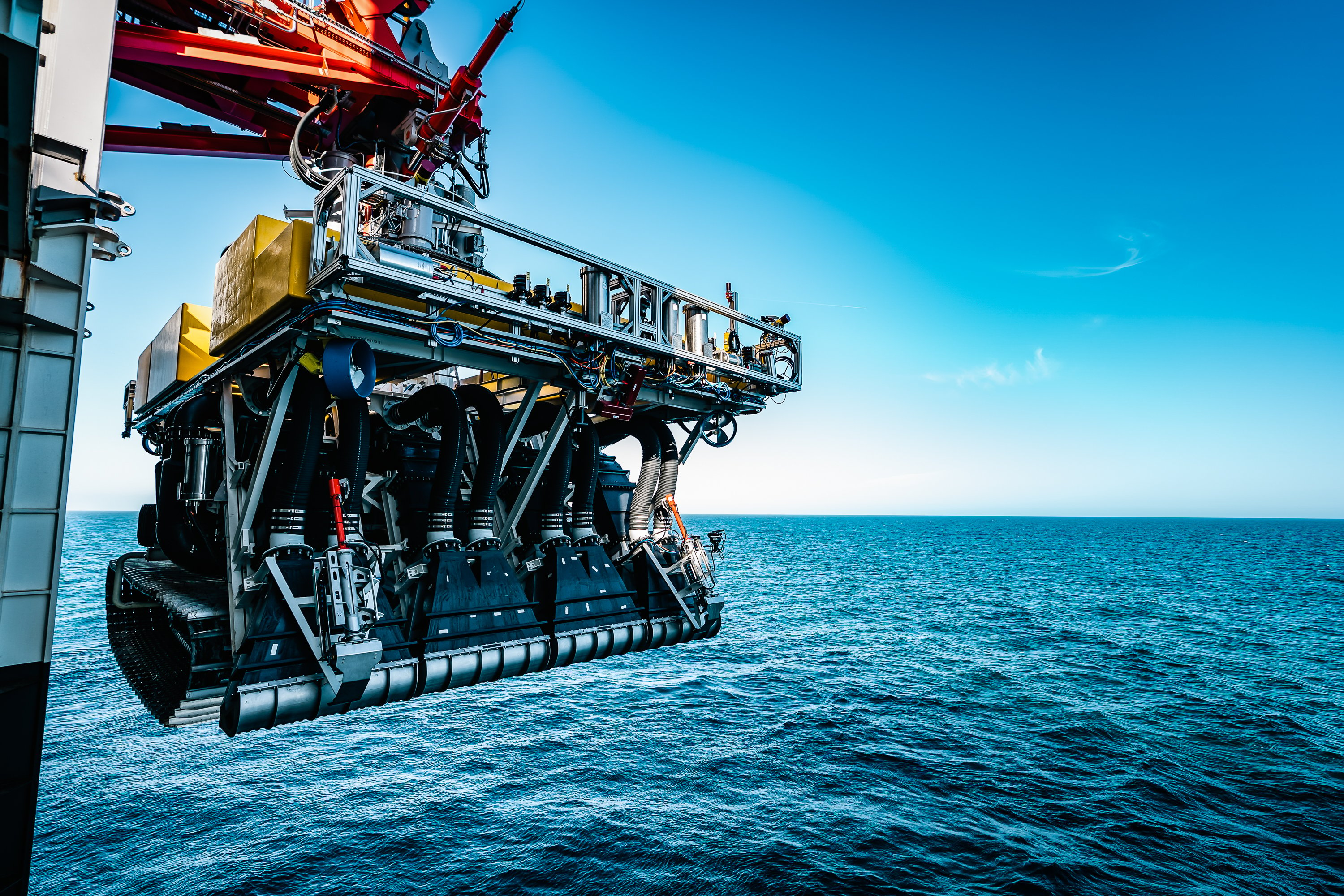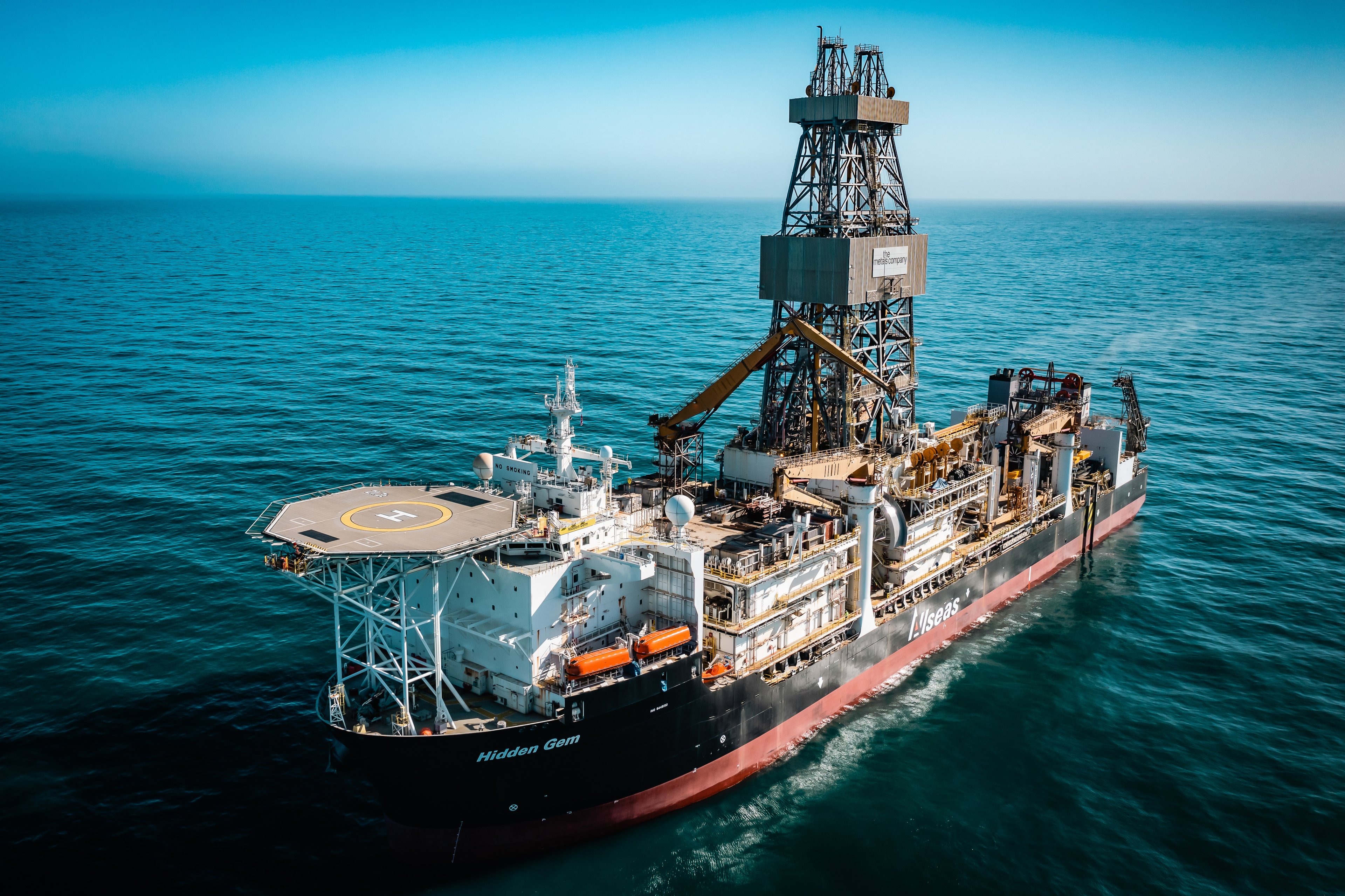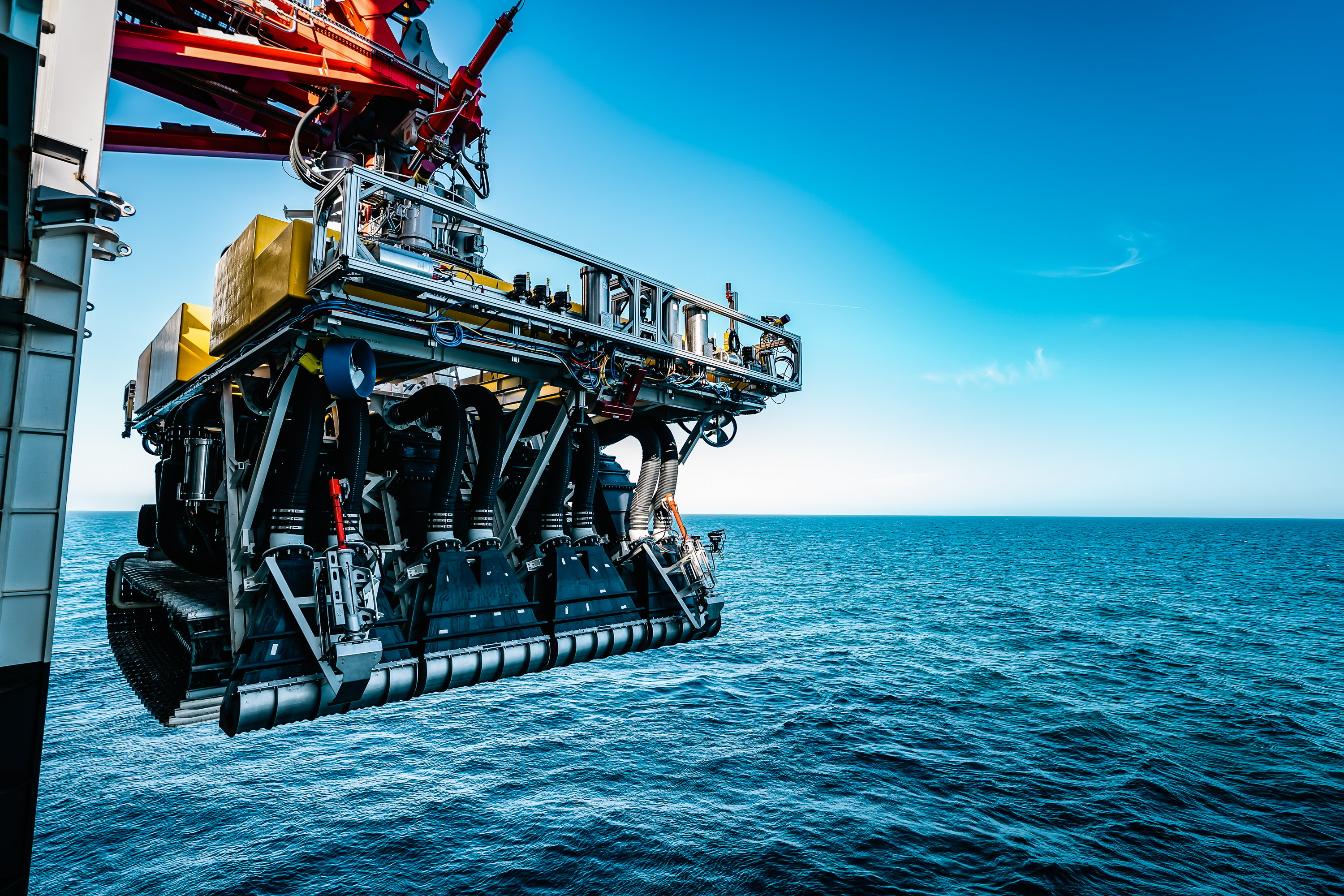Most mining companies start with a hole in the ground, or at least the rights to dig one. The Metals Company (TMC 3.12%), however, wants to start about four to six kilometers under the Pacific Ocean.
More specifically, it's looking at the Clarion Clipperton Zone (CCZ), a region between Hawaii and Mexico, which is loaded with polymetallic rocks called "nodules." Billions of tonnes of these potato-sized rocks sit here, each carrying nickel, copper, cobalt, and manganese in large quantities.
No deep-sea mining company in the world has commercial rights to mine these nodules. But The Metals Company is perhaps the best-positioned firm to gain access in the next few years. That's one reason this growth stock has gained nearly 500% on the year.
With an enormous trove of battery metals within its grip, is TMC an obvious buy today? Let's take a look.

Image source: The Metals Company.
A tale of two winds
TMC is in a peculiar place right now. On the one hand, it doesn't have the green light from the International Seabed Authority (ISA) to mine the deep sea commercially. On the other, it has policy support from the White House to kick its mining operations into high gear.

NASDAQ: TMC
Key Data Points
Let's start with the first of those. For years now, TMC has been waiting for the ISA, a UN-backed organization, to finalize a "mining code" that will govern deep sea mining in international waters. For more than a decade, the ISA has been working on this code, but internal dispute, particularly around how deep-sea mining will affect the environment, has delayed the process. As such, TMC's operations have been in regulatory limbo.
Now to the second. The U.S. never ratified the treaty that helped establish the ISA. As a result, it thinks it can follow its own framework for deep-sea mining.
Indeed, in April 2025, President Donald Trump signed an executive order aimed at accelerating the permitting process for seabed mining companies. That gives companies incorporated in the U.S. a potential head start, especially if the ISA takes even longer to let its ratifying nations mine the deep sea.
TMC is based in Canada, but it has a U.S.-based subsidiary, which has allowed it to apply for a deep-sea mining permit under U.S. law. In August 2025, the National Oceanic and Atmospheric Administration (NOAA) confirmed that TMC USA's exploration application is fully compliant and moved it into a certification stage, which could last about 100 days.
The trillion-dollar question
The permitting process could move quickly from here, which is one reason TMC's stock has skyrocketed in 2025. Even so, the company doesn't expect production to start until late 2027. For investors, that means this startup could go two years without generating any revenue.
On that note, the company had about $116 million in total at the end of June 2025. It reported an operating loss of $22 million, and over the last 12 months, its cash burn rate has averaged about $10 million a quarter.
Still, building a deep sea mining operation will involve heavy spending on mining equipment and hydrometallurgical technology. It's not likely to be cheap, and TMC will likely need a cash injection at some point to sustain itself.
One bright spot, however, is the potential value of the CCZ zone. Researchers at Arthur D. Little estimate nodules there could be worth $20 trillion. Of course, TMC doesn't hold exploratory rights for the entire CCZ, but by its own estimates its portion of it could be worth about $24 billion. With a current market cap of $3 billion, the company sees significant upside from here.
Keep a close eye on battery technology and commodities
Of course, we have to be careful when valuing TMC. Nodules don't trade on an exchange, and their worth is derived almost entirely from assumptions about future metal demands. Those assumptions may seem reasonable right now but could swing at the drop of a hat.
For example, what happens if the chemistry of an EV battery changes? What happens if cobalt and nickel are no longer primary ingredients in it, or if we find a substitute for copper? Likewise, if TMC's operations come online at a time when any of these metals are in surplus, it could diminish the overall value of its trove.
The converse could happen as well. For instance, TMC could find itself in an excellent position if AI-powered demand creates a copper shortage, or if cobalt and nickel end up in short supply.
All in all, the range of possibilities -- especially those that could erase value from the company's main asset -- is part of why this stock is so speculative, and should be treated as such. For a low risk tolerance, a metals exchange-traded fund (ETF) may be the better option.





